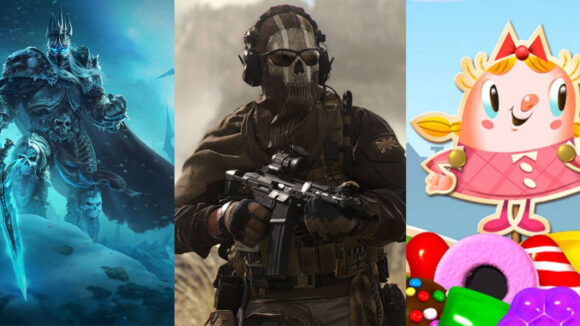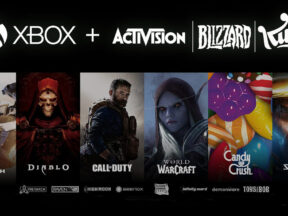

U.K. Blocks Microsoft’s $68.7B Acquisition Of Activision Blizzard
The U.K. Competition and Markets Authority (CMA) has said it will block Microsoft’s $68.7 billion acquisition of Activision Blizzard over concerns that if the deal were allowed to proceed, it would hinder competition in the cloud gaming space.
Today’s decision: Authorities at the CMA declared today that after months of research in which it analyzed three million Microsoft and Activision documents and read 2,100 emails sent in by concerned citizens, the organization believes the proposed acquisition would “alter the future of the fast-growing cloud gaming market, leading to reduced innovation and less choice for U.K. gamers over the years to come.”
Background: In January 2022, Microsoft agreed to buy Activision Blizzard for $68.7 billion. Activision Blizzard is one of the world’s most popular video game devs and owns hit franchises including Call of Duty, Overwatch, World of Warcraft, and Candy Crush. In September of last year, CMA launched an in-depth review of the deal. In February of this year, the organization provisionally found that the merger could make Microsoft even stronger in cloud gaming, stifling competition in this growing market.
What were the CMA’s concerns in February? In February’s decision, the CMA raised the following concerns and gave Microsoft a chance to respond:
- The CMA believed it would be commercially beneficial for Microsoft to make Activision games exclusive to its own cloud gaming service.
- Microsoft already accounts for an estimated 60-70% of the global cloud gaming marketplace, and this deal could reinforce the company’s advantage in the market by giving it control of important franchises.
- The CMA said that if this merger doesn’t go through, Activision will provide games via multiple cloud platforms.
- Allowing Microsoft to take such a strong position in the cloud gaming market could undermine innovation that is vital in developing a system that allows gamers access to content without purchasing expensive consoles and/or PCs.
What does the CMA say about Microsoft’s response? After February’s CMA decision, Microsoft submitted a proposal to address some of the concerns. According to the CMA, the proposal fell short in several ways:
- It did not sufficiently cover different cloud gaming service business models, including multigame subscription services.
- It was not sufficiently open to providers who might wish to offer versions of games on PC operating systems other than Windows.
- It would standardize the terms and conditions on which games are available, as opposed to them being determined by the dynamism and creativity of competition in the market, as would be expected in the absence of the merger.
Martin Coleman, chair of the independent panel of experts who handled the investigation, said:
Gaming is the U.K.’s largest entertainment sector. Cloud gaming is growing fast with the potential to change gaming by altering the way games are played, freeing people from the need to rely on expensive consoles and gaming PCs and giving them more choice over how and where they play games. This means that it is vital that we protect competition in this emerging and exciting market… Cloud gaming needs a free, competitive market to drive innovation and choice. That is best achieved by allowing the current competitive dynamics in cloud gaming to continue to do their job.
So is the deal dead? Hardly. Microsoft vice chair and president Brad Smith put out a statement today promising to appeal the CMA’s decision:
We remain fully committed to this acquisition and will appeal. The CMA’s decision rejects a pragmatic path to address competition concerns and discourages technology innovation and investment in the United Kingdom. We have already signed contracts to make Activision Blizzard’s popular games available on 150 million more devices, and we remain committed to reinforcing these agreements through regulatory remedies. We’re especially disappointed that after lengthy deliberations, this decision appears to reflect a flawed understanding of this market and the way that relevant cloud technology actually works.
Pictured at top: World of Warcraft, Call of Duty: Modern Warfare 2, Candy Crush




